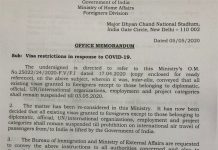Bhubaneswar: Gujarat has announced to implement the uniform civil code after Uttarakhand as the first state of the country implementing the famous uniform civil code. It is mentioned in the 44th paragraph of the constitution that the states shall ensure the implementation of the uniform civil code for the unification, safety , security of the citizens, as well as to empower the states for making laws. So there should not be so much chaos and hurdles to implement this.
By analysing the history, it came to notice that in 1835, Lord Michael in British rule had brought a commission for the implementation of rule on the basis of religion in India. The Commission stated to implement one legal provision for the consideration of the criminal cases barring all the religions while for the marriage, divorce, adoption, property inheritance matters were kept separate from this uniform process as different religions have different social systems in this regard. So the commission granted order for forming laws on the basis of religion for these particular matters. Later due to population growth, requirements of the administration, the British government published a report for implementing new laws pertaining to criminal justice. They even tried to make separate laws for Hindus and Muslims. In the year 1937 by the Sharia Muslims the Muslim personal law was implemented. In 1941 under the supervision of B.N Roy another commission was formed which suggested implementing one uniform law for all the citizens.
After the independence, in the first constitutional meeting in 1948 it was predicted for a for Hindu code of conduct. This law aimed to eradicate the social stigmas like child marriage and the practice of sati system. But it could not be implemented due to the opposition from the then political leaders like Shayma Prasad Mukherjee, Karpatri Maharaj etc. In 1955, the Hindu religious code of conduct, Hindu property inheritance act, social systems, Hindu marriage act, Hindu adoption and maintenance act, Hindu minor and guardianship act were implemented after Baba Saheb Ambedkar wrote a letter requesting to the then prime minister Jawaharlal Nehru. These Hindu laws are still in practice. Similarly, Muslim personal laws were implemented for the Muslims from 1972. Christian marriage act, Parsi marriage and separation act 1938, and for the Sikh, the revised ‘ Anand Vivah act 2012’ have been implemented.
After India got independence, the constitution was created by the guidance of Dr. Bhima Rao Ambedkar. He proposed for the uniform civil code whereas it was opposed by many then. As a result, according to part IV, article 44, the Directive Principles of State Policy, the states are empowered to implement uniform civil code for the citizens. On the other hand, the people are given the fundamental rights as freedom of adopting, following and worshiping the religion of their choice as per article 25 of the constitution. In article 14-15, gender equality, in article 21 protection of protection of women’s rights became a hurdle for the implementation of uniform civil code.
As the criminal justice act 125 is appreciated for women of all religions, in 1985 in the supreme court rejected the triple talaq law of the Muslim personal law in the Saha Bano case and ordered her husband Mohammad Ahammad Khan to take the responsibility of monthly maintenance. At that time there was a lot of objection from the Muslim community against the supreme court verdict. The supreme court ordered the central government to follow the uniform civil code in this case as all the citizens are equal before law as per the preamble of the constitution. But considering the sensitivity of the situation, the then prime minister Rajiv Gandhi had implemented Muslim Women ( Protection of Right on Divorce) 1986. As per this special law the husband will give maintenance only for the Iddat ( waiting period) during the divorce. But both Hindu and Muslim women objected to this law on the ground that it is violating the rights of the women from the minority communities. Similarly, the Sarala Mudgal case in 1994, Minu Mathur case in 1988, John Balvant case in 2003 and Saira Bano case in 2017 were directed as unconstitutional interns of triple talaq by the supreme court and directed as to implement the uniform civil code. The supreme court has been suggesting to implement a unified law for all citizens through various such cases.
It is speculated that if the uniform civil code is implemented, ten new laws would come into force. A minimum age of marriage will be set for all, the base and system of divorce, the rules and regulations of maintenance to the wife, the process and system of adoption, selection of legal heirs and property inheritance, restrictions on polygamy and so on would be revised as per the uniform civil code. The 14 hundred years old Muslim personal law as per the Sharia laws will have to be changed as well. The approval of uniform civil code over the Muslim personal law would not be implemented as the latter is based on religious sentiments. There is a possibility that certain sections from the Hindu community might oppose this law. There are about 705 types of tribes and their subsections in our country. They are 8.5 percent of the country ‘s population. As per the tribal traditions, they can marry more than one woman. If the uniform civil code is coming to practice, they will oppose the development. Likewise the Hindu Joth family would oppose the law on equal property rights as they follow a separate property division system.
As mentioned in a government report in 2015, about 28 percent of South Indian weddings are made among their paternal, and maternal side of relatives. This law will affect their marriage culture. The preamble of the constitution states all the citizens should go by the uniform civil code. If this law is implemented, the minority muslim women will get equal rights over their paternal property line with their brothers. The rule for divorce will be the same in case of inter religious marriages. This law will help to prevail equality, and balance among the citizens.
-OdishaAge




















